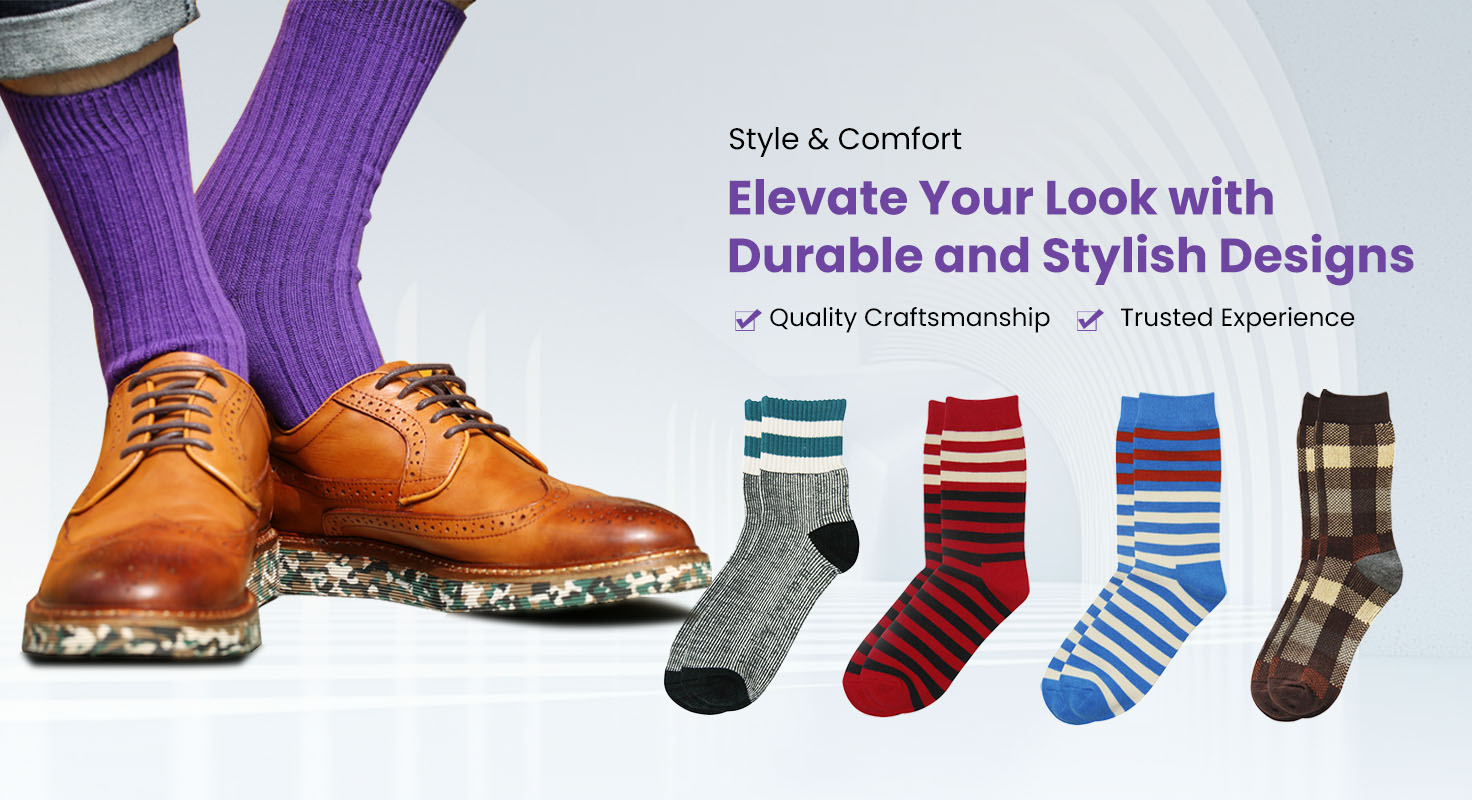Sustainable Casual Socks: The Future of Eco-Friendly Footwear
In the last few years, sustainability became a core value in fashion, which makes an effort to produce more eco-friendly casual socks. Nowadays, the majority of consumers are concerned with how their purchases affect the environment, thus socks which were primarily manufactured with cotton, wool, or synthetic materials are beginning to change. These simple yet essential products are gradually becoming available in eco-friendly alternatives and are made using safe materials and practices due to the rising need for such products.
An increase in use of sustainable casual socks can also be attributed to the increased consumer interest in sustainable goods. Consumers’ environmental awareness is promoting demand for brands which claim to be eco-friendly. As a response to these trends, manufacturers are starting to look for materials that are more suitable for the environment, including organic cotton, bamboo, hemp, and recycled fibers. For instance, organic cotton is grown without toxic fertilizers and pesticides, leading in a better environmentally petrochemical footprint. Bamboo socks are another sustainable alternative because bamboo is a crop that is simple to grow and needs fewer resources to do so, making it a suitable eco-friendly material.
The production of casual socks is also reported to be increasing with the use of recycled polyester and nylon. These materials are derived from post-consumer plastics, such as used plastic bottles which eases the demand for raw materials and helps divert waste from landfills. In this case, recycled fibers enable the manufacturing of socks that are durable, functional and environmentally friendly at the same time.
Apart from material selection, the sustainable production methods are revolutionizing the industry as well. Energy-efficient machines, water-saving technologies and practices, and decent work conditions are several of the investments that many sock producers are making. All these businesses aim at cutbacks on waste, water consumption and the carbon footprint across the entire manufacturing cycle. Some brands have also adopted this strategy by sourcing their products locally to reduce the emissions from transportation and promote the local economy.
The sustainable transformation is not only limited to materials and processes, but also to the packaging of casual socks. Recyclable or biodegradable packaging is being adopted by many companies in an effort to achieve even greater sustainability. By reducing plastic waste and switching to paper or compostable packaging, brands express their loyalty to consumer preferences and encourage a circular economy.
It is apparent that sustainability is earning more appealing; therefore, the market for eco-friendly casual socks is expected to grow in the subsequent years. Clearly there is an appetite for sustainable producers which goes ahead foreseeing the issues of the future shoe needs. The industry of casual socks has to see a brighter future ahead with innovations in material used, production and packaging ushering in a more responsible and ethical approach to business practices.
To conclude, as consumers and producers transition toward more sustainable practices, casual socks are quickly becoming the future of environmentally friendly footwear. With an emphasis on sustainable materials, ethical manufacturing processes, and minimalistic packaging, the casual sock industry is making necessary strides to ensure a greener and more sustainable future.


